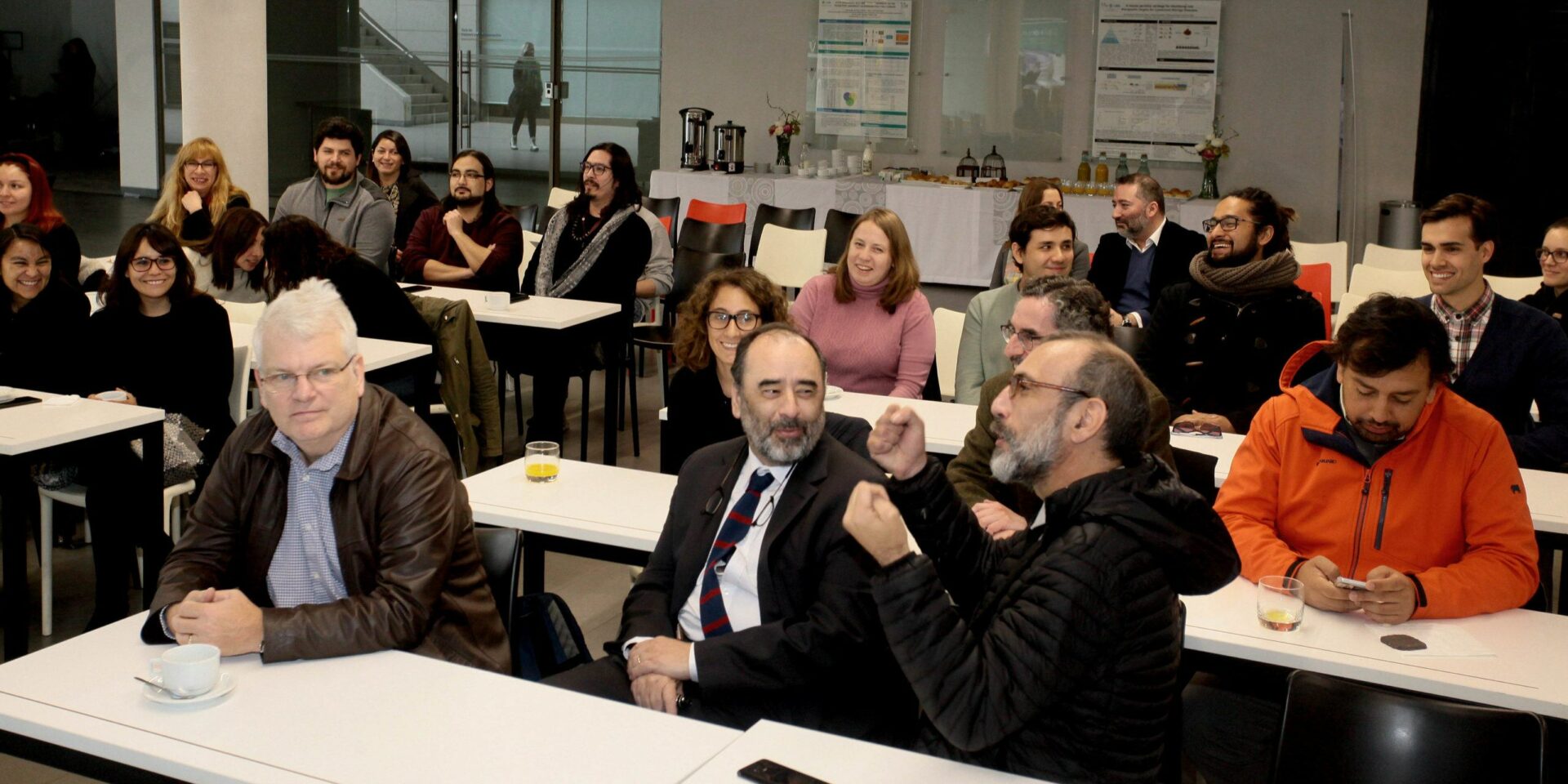
The article «Response to selected ecological parameters by Leptus hringuri Haitlinger, 2000 larvae (Trombidiformes: Erythraeidae) parasitizing treehoppers (Hemiptera: Membracidae) from Bolivia on two host-plant species», 2000 [Trombidiformes: Erythraeidae] that parasitize membranes [Hemiptera: Membracidae] of Bolivia in two host plant species) by Daniel Torrico-Bazoberry, PhD student of the Doctorate in Social Complexity Sciences (DCCS), is one of the few papers studying the ecology of parasitic mites of the genus Leptus worldwide.

Thus, the prestigious International Journal of Acarology has just published Torrico’s article, with the collaboration of Joselina Davyt, also a student of the DCCS. The research sought to study the ecology of the Leptus hringuri mite, small arachnids that parasitize insects. In this case, the parasitized host insect (known as a membracid) is a social herbivore that lives on two plants and is characterized by the fact that the mother lays the eggs and then stays to care for her young until they are fully developed (maternal care). In this work, we studied the effect of light, relative humidity, temperature, host plant species and distance from the soil to the nesting site of the membranes, since mites must climb the plant to feed on their host.
Some of the results pointed to the existence of more parasitism (more mites) in one plant than in another; that parasites like places with more light and relative humidity; and that they were found in greater quantity when their host nested at lower heights above the host plant. In addition, it is suggested that there may be chemical signals from insects or plants that guide the parasites to their prey. In this sense, due to the importance that chemical compounds have in ecological and social interactions, Daniel plans to incorporate his past experience in Chemical Ecology in projects of human behavior and social interaction for his doctoral thesis.
The Article
Daniel Torrico-Bazoberry, Carlos F. Pinto, Joselina Davyt-Colo & Hermann M. Niemeyer (2020) Response to selected ecological parameters by Leptus hringuri Haitlinger, 2000 larvae (Trombidiformes: Erythraeidae) parasitizing treehoppers (Hemiptera: Membracidae) from Bolivia on two host-plant species, International Journal of Acarology, DOI: 10.1080/01647954.2020.1751280
This work was supported by the Latin American Network for Bioactive Natural Compounds Research (LANBIO) and the BOL-01 programs funded by the International Science Program (ISP, located at Uppsala University).